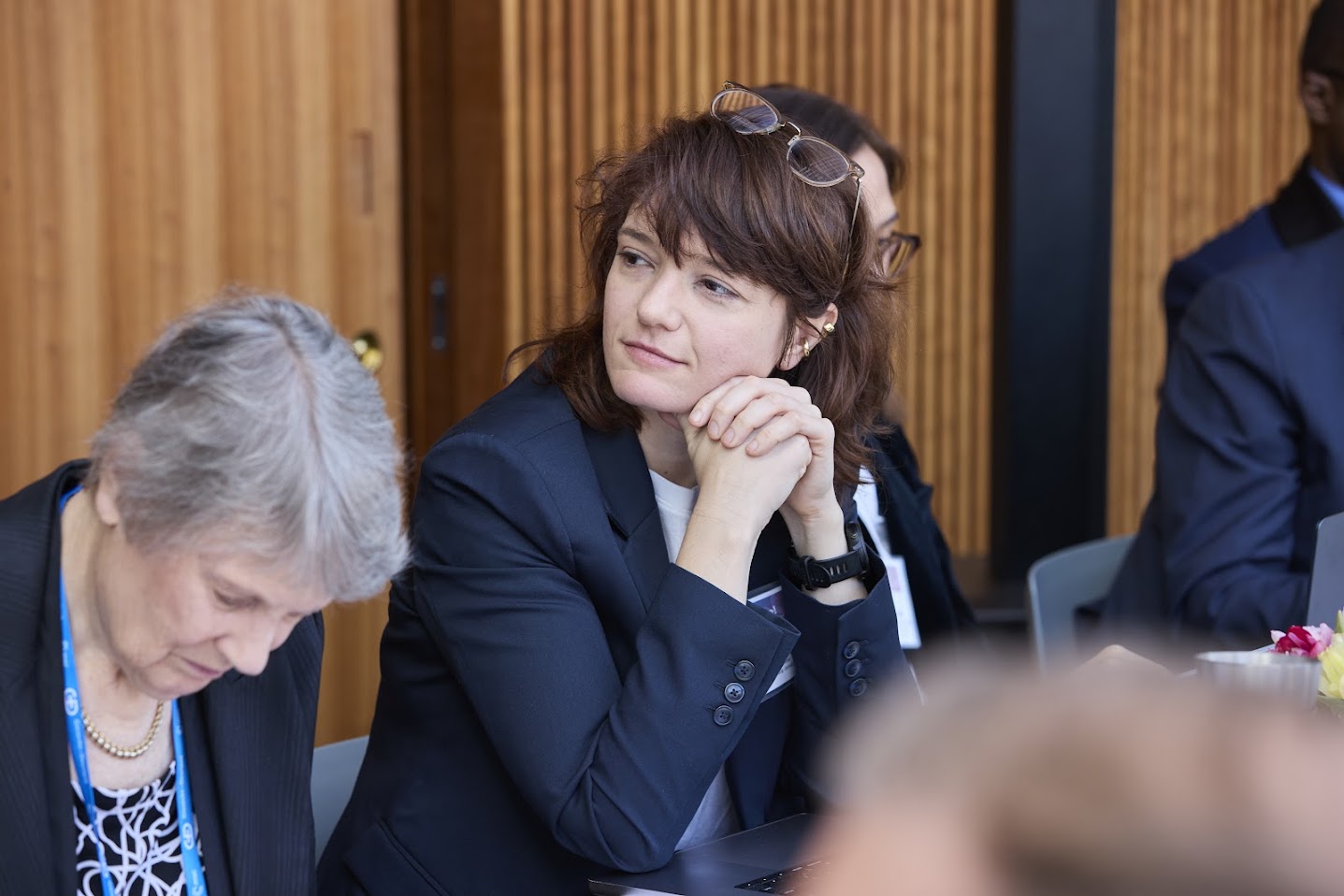Safeguarding communities, the nation and the world from biological threats, like infectious disease outbreaks and the weaponization of biological technologies, is a cornerstone mission of the Pandemic Center at the Brown University School of Public Health.
To help address these threats, the Pandemic Center launched the Biosecurity Game Changers international fellowship program this year. Its inaugural cohort includes eight scientists committed to preventing and preparing for high-stakes global health security challenges. The year-long fellowship began in September with a policymaking workshop in Addis Ababa, Ethiopia.
Genomic Epidemiologist Edyth Parker is among the first cohort of Game Changer Fellows.
Over the past year, Parker has been embedded with the International Biosecurity and Biosafety Initiative for Science (IBBIS), an NGO focused on advancing responsible protections in bio-innovation.
Her central project is the Global DNA Synthesis Screening Map, a database of DNA synthesis providers, their screening practices and the relevant national regulations around DNA synthesis and transfer. A goal of the project is to prevent deliberate and accidental biological emergencies while helping to enable African bioeconomies–which use renewable biological resources and technologies such as gene editing–to flourish safely.
To date, Parker has interviewed over 40 scientists, company leaders and regulators across 15 African countries and conducted extensive open-source research. Her team has presented her findings at the UN’s Biological Weapons Convention and SynBio Africa.
Parker is also developing policy workshops focused on securing Africa’s growing bioeconomy. These sessions—which will include regulators, industry leaders and officials from organizations such as Africa CDC, and the Council for Scientific and Industry Research Biofoundry—will focus on integrating safety measures like DNA screening into bioeconomic development plans.
Parker, who earned her doctorate from the University of Cambridge, studies how diseases evolve over time and spread through populations and geographies. Her approach helps us understand the origins of outbreaks, how viruses spread across borders, the hosts they may have jumped from and whether their evolving traits make them more dangerous or transmissible. She currently works at the Institute for Genomics and Global Health.
We spoke with Parker about her work at Brown as a Biosecurity Game Changer.

Tell us a bit about what you’re working on for the Pandemic Center.
I’m hosted by IBBIS, the International Biosecurity and Biosafety Initiative for Science, whose mission is really about enabling science and bio-economies to flourish, while ensuring that innovation happens responsibly, especially when it comes to dual-use research and emerging technologies.
The core of IBBIS’s current portfolio is DNA synthesis screening. Synthetic DNA is foundational across biotech, used in everything from diagnostics to agricultural tech. As it becomes easier and cheaper to synthesize DNA, access widens, which is great for science. But it also lowers the barriers for malicious actors to acquire the components needed to engineer biological threats.
IBBIS focuses on safeguarding the “digital-physical” interface—essentially, the systems that translate digital DNA designs into physical molecules. That’s a key leverage point, especially given how hard it is to regulate the rapidly evolving AI landscape. One practical way to reduce risk is by implementing robust screening processes at DNA synthesis companies.
IBBIS advocates for two key safeguards: customer screening (verifying buyers are legitimate scientists or companies) and sequence screening (checking the DNA being ordered doesn’t include parts of dangerous pathogens). This helps detect and deter misuse before anything is synthesized. It’s a growing area of work, but IBBIS is very much leading on this front.